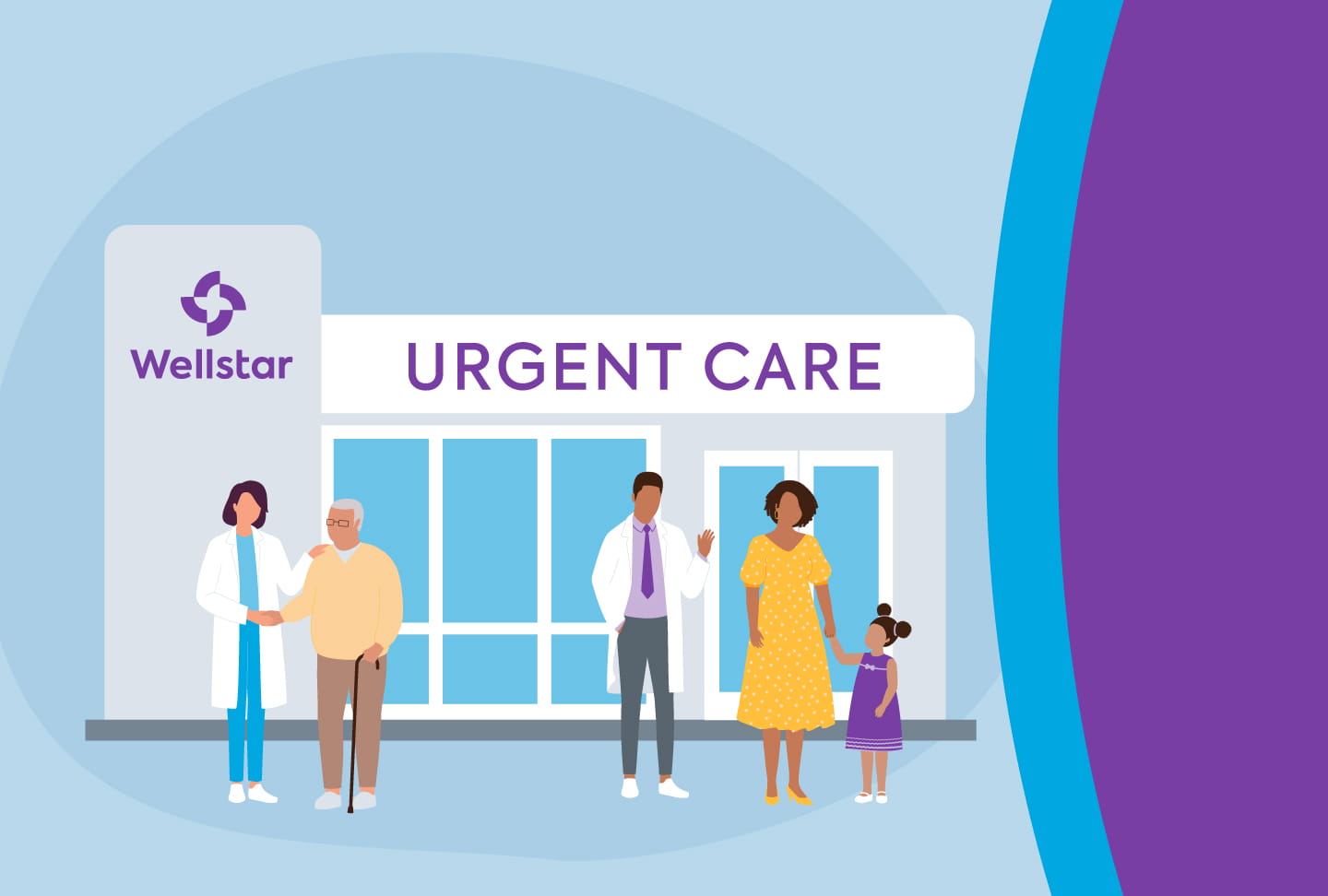Wellstar has three new urgent care centers in Austell, Rome and Woodstock to serve our community’s growing healthcare needs. These locations provide convenient care for minor emergencies, illnesses and injuries.
Walk-ins are always welcome, but you also have the option to book a visit online at the time that works best for you. Booking online can help reduce your wait time once you arrive.
Our three new Wellstar Urgent Care locations:
1025 East-West Connector
Austell, GA 30106
(678) 273-3071
Monday - Friday, 8 AM - 8 PM; Saturday - Sunday, 8 AM - 4 PM
Urgent Care Check-In at this location
1314 Turner McCall Blvd.
Rome, GA 30161
(706) 728-3240
Monday - Friday, 8 AM - 8 PM; Saturday - Sunday, 8 AM - 4 PM
Urgent Care Check-In at this location
4477 Towne Lake Parkway
Woodstock, GA 30189
(770) 249-5620
Monday - Friday, 8 AM - 8 PM; Saturday - Sunday, 8 AM - 4 PM
Urgent Care Check-In at this location
In addition to the three new locations, Wellstar Urgent Care in Kennesaw has relocated to a larger space only a mile from its previous location. Visit us at:
3980 Jiles Road
Kennesaw, GA 30144
(770) 426-5665
Seven days a week, 8 AM to 7:30 PM
Urgent Care Check-In at this location
Wellstar Urgent Care provides:
- Care for minor illnesses and injuries, such as coughs, colds, sprains and broken bones
- Treatment for medical issues like bites, burns and cuts
- Flu care
- Rapid COVID-19 testing for all ages
- Labs and X-rays
- Sports physicals
- Worker’s compensation services




